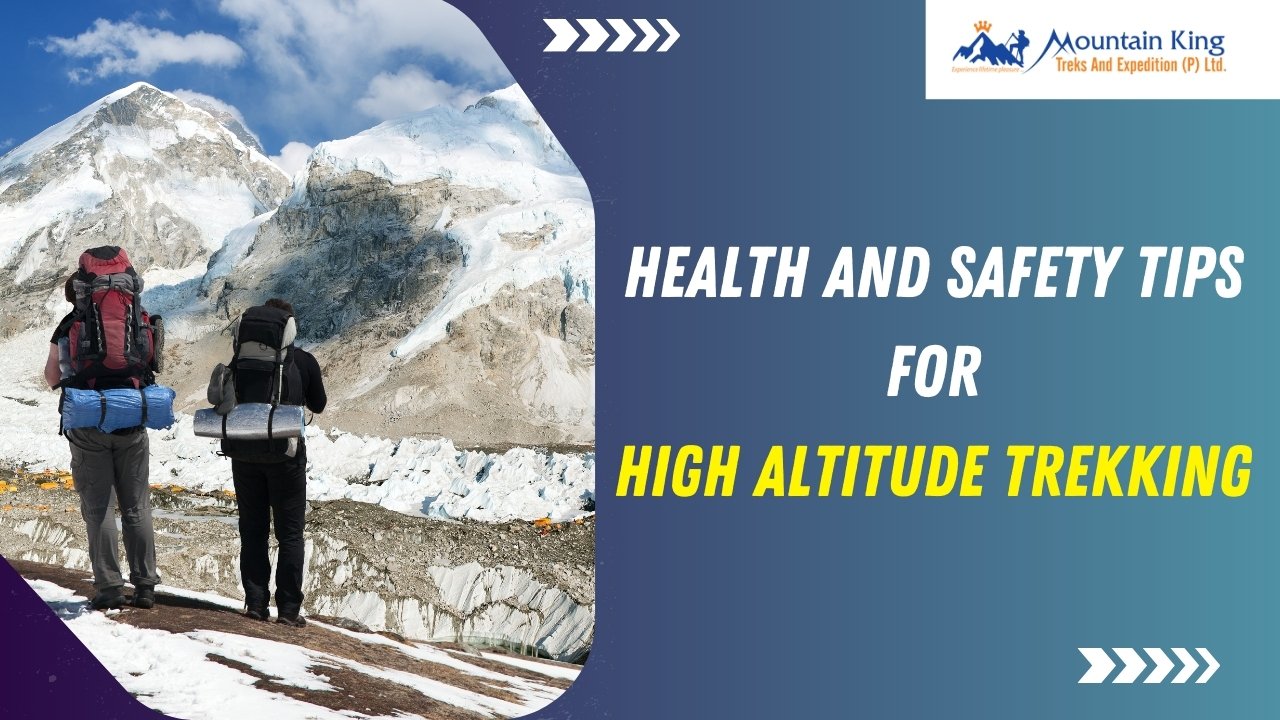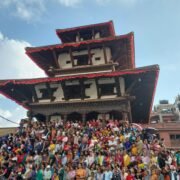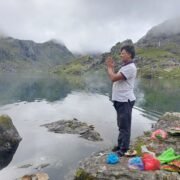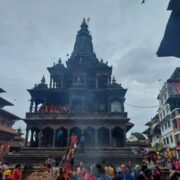
Health and Safety Tips for High Altitude Trekking
Planning a high-altitude trek in the majestic Himalayas? High-altitude trekking offers breathtaking scenery and an unforgettable experience, but it comes with its own set of challenges. For a safe and successful adventure, following the right health and safety tips for high-altitude trekking is crucial. With Mountain King Treks, recognized as the best trekking agency in Nepal, you can explore the Himalayas with confidence, knowing that your safety is in expert hands.
Understanding Altitude Sickness
One of the key health and safety tips for high altitude trekking is understanding and managing altitude sickness. As you ascend higher, oxygen levels decrease, making it difficult for your body to adjust. This can result in altitude sickness, also known as Acute Mountain Sickness (AMS), with symptoms like headaches, nausea, and dizziness. Severe cases can escalate to High-Altitude Pulmonary Edema (HAPE) or High-Altitude Cerebral Edema (HACE), both of which can be life-threatening.
To prevent these risks:
- Ascend gradually: Avoid rapid altitude gain; aim for 300-500 meters of elevation gain per day.
- Take rest days: Rest days allow your body to adapt to the changing altitude.
- Stay hydrated: Drinking plenty of water is a must for high-altitude trekking.
- Pay attention to symptoms: Recognize and address early signs of AMS.
Choosing Mountain King Treks, the best trekking agency in Nepal, ensures that your trek is planned with proper acclimatization, minimizing the risks of altitude sickness. Their experienced guides monitor trekkers for any symptoms and provide the necessary support to stay safe.
Selecting the Right Trekking Route
When it comes to health and safety tips for high altitude trekking, choosing the right trekking route is fundamental. The Himalayas offer a range of trekking trails, from challenging routes like the Everest Base Camp to more moderate ones such as the Annapurna Base Camp. Your choice should match your fitness level and trekking experience.
With Mountain King Treks, you get expert advice on selecting a route that fits your physical capacity. As the best trekking agency in Nepal, they tailor treks to ensure your comfort and safety throughout the journey, whether you’re a beginner or a seasoned adventurer.
Physical Preparation for High-Altitude Trekking
Proper physical preparation is one of the most important health and safety tips for high-altitude trekking. Trekking in high altitude regions can be demanding, and building your fitness before the trek can significantly enhance your experience.
- Cardio exercises: Activities like jogging, swimming, and cycling improve your lung capacity, which is crucial for high-altitude environments.
- Strength training: Focus on leg and core exercises to build strength for challenging trails.
- Practice hikes: If possible, practice hiking on rough terrain with a loaded backpack to get used to carrying weight.
Mountain King Treks offers detailed guidance on how to prepare physically for different treks, ensuring that you’re ready for the challenges of high-altitude trekking. Their support helps you enjoy the adventure with minimal risks.
Dressing for the Conditions
One of the best health and safety tips for high altitude trekking is dressing appropriately for the unpredictable weather in the mountains. Temperatures can drop suddenly, and it’s common to encounter a mix of sun, wind, rain, and snow in a single day.
Here’s how to stay protected:
- Layer your clothing: A base layer for moisture-wicking, an insulating layer for warmth, and a waterproof shell for protection against wind and rain.
- Quality trekking boots: Sturdy, waterproof boots are essential for navigating rocky and wet terrain.
- Thermal wear: Keep warm with thermal gloves, hats, and socks.
As the best trekking agency in Nepal, Mountain King Treks provides a detailed packing list tailored to each trek, ensuring that you have all the right gear to stay safe in any conditions.
Staying Hydrated and Eating Well
Staying hydrated is often overlooked, but it is one of the critical health and safety tips for high-altitude trekking. Dehydration can worsen altitude sickness and sap your energy during the trek. Aim to drink at least 3-4 liters of water per day and avoid alcohol and caffeine, as they can cause dehydration.
To keep your energy levels up:
- Pack energy-rich snacks: Nuts, energy bars, and dried fruits provide quick energy boosts.
- Eat balanced meals: Consuming a mix of proteins, carbs, and fats helps sustain energy during long days of trekking.
Mountain King Treks ensures trekkers have access to nutritious meals that meet the needs of high-altitude exertion, keeping you fueled and ready for each day’s adventure.
Rely on Experienced Guides
One of the most valuable health and safety tips for high altitude trekking is to rely on the expertise of experienced guides. A good guide can make a huge difference in terms of route selection, acclimatization, and responding to emergencies.
With Mountain King Treks, you have access to some of the most knowledgeable guides in Nepal. Their team has years of experience in leading high altitude treks and providing critical support when needed. This is why Mountain King Treks is consistently praised as the best trekking agency in Nepal.
Emergency Preparedness
Even with careful planning, emergencies can occur during high-altitude treks. Having a plan in place for emergencies is among the top health and safety tips for high-altitude trekking.
- First-aid kits: Always carry basic first-aid supplies.
- Knowledge of rescue procedures: Know how to access emergency evacuation services.
- Stay connected: Make sure your guides have communication devices to call for help if needed.
Mountain King Treks is well-prepared for any eventuality, providing a layer of security that lets you focus on enjoying the beauty of the Himalayas. Their commitment to safety has earned them a reputation as the best trekking agency in Nepal.
Conclusion: Your Safety is in Good Hands with Mountain King Treks
Trekking at high altitudes is an incredible adventure, but it requires careful attention to health and safety. By following these health and safety tips for high altitude trekking, you can ensure a safe and enjoyable experience. And when you choose Mountain King Treks, you’re partnering with the best trekking agency in Nepal, known for its expertise, commitment to safety, and tailored trekking experiences.
One thought on “Health and Safety Tips for High Altitude Trekking”
Add a Comment Cancel reply
Recent Posts
Indra Jatra Festival – Celebrate Nepal’s Cultural Extravaganza with Mountain King Treks
Janai Purnima Festival at Gosainkunda – A Sacred Pilgrimage with Mountain King Treks, the Best Trekking Agency in Nepal
Krishna Janmashtami Festival in Nepal – Celebrating Culture, Religion, and Heritage with Mountain King Treks

Thailand




[…] is another safety tips for Nepal trekking. Trekking in Nepal demands proper acclimatization because this step remains essential for people […]